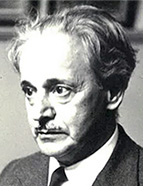

In all three, therefore, he finds renewed versions of the use of finalism and causality , two explanatory matrices that he criticised throughout a large part of his production because they presuppose a supra-historical common-sense perspective, incapable of overcoming the temptation to hypostatise and go beyond the limits of possible knowledge, determining a major epistemological obstacle to the development of scientific historiography .
Since he believes that the human condition is intrinsically historical, in accordance with the historicist orientation of neo-Kanti anis m, which also appears in Ortega y Gasset ’ s Historia como Sistema [ History as System ] , the surplus of life-history in relation to science-history appears to be an anthropological inevitability, which also forms a fundamental condition of historical knowledge. Insofar as historiography, in his view, ultimately depends on the traces of past collective action (a necessary, but never sufficient, starting point), its object is factual knowledge, the ideal way of organising the available information and constructing an interpretation of the realised world, in terms of what it was, not what it could or should have been, in itself or in the will of men (an insurmountable stage of objectification without, however, corresponding yet to the scientific knowledge pattern), and aims for a properly scientific understanding, i.e. , universal, relational and functional, of the dynamism of time, for which it inevitably has to generate a constructive perspective . S ince “ par la perspective donc et seulement par elle les faits acquièrent une signification et une valeur ” ( OF III , p. 28), there is no way to make this process coincide with a determination of the system of causes or ends . Life-history manifests as action, i.e., as a set of relationships between events, and so science-history can only be the construction of possible meanings to contain the constitutive indeterminacy and contingency, never the unveiling of a prior order, which, if it existed, would imply the negation of historicity. As he had already established in “ Théorie de l’ histoire”, “ c’est le monde réalisé et en train de se réaliser toujours qui nous importe et aucunement pas les entités que nous mettons en cause de la réalisation de ce monde ” ( OF I , p. 213).
This work is financed by national funds through FCT - Foundation for Science and Technology, I.P, in the scope of the projects UIDB/04311/2020 and UIDP/04311/2020.
